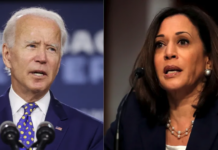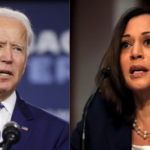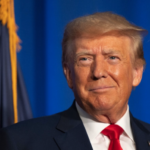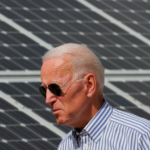Folks, In a landmark decision, the U.S. Supreme Court sided with the Biden administration in a case brought by conservatives who accused the president of overstepping his authority by directing social media companies to ban users and remove posts during the pandemic. This 6-3 ruling has sent shockwaves through the political landscape, so let’s break it down.
The case was initiated by the Republican attorneys general of Missouri and Louisiana, along with five plaintiffs who claimed they were censored. The lower court had previously found that the administration erred by pressuring companies like Facebook, Instagram, and Twitter to remove content about the pandemic, masks, and vaccines that it deemed harmful to public health.
Justice Amy Coney Barrett, writing for the majority, stated that the plaintiffs couldn’t link their past social media restrictions to the administration’s communications with these platforms. Essentially, they failed to establish standing to seek an injunction to prevent future harm.
However, the decision was not unanimous. Conservative justices Clarence Thomas, Neil Gorsuch, and Samuel Alito dissented. Alito passionately argued that the ruling allows a “campaign of coercion” to stand as a precedent for future government officials who want to control public discourse. He described the actions of the administration as “blatantly unconstitutional” and warned that the country might regret the Court’s failure to denounce them.
Back in July 2023, Louisiana U.S. District Judge Terry A. Doughty had labeled the federal government’s actions as a significant overreach, describing the efforts to pressure social media companies as “Orwellian” and a massive attack on free speech. Though a Fifth Circuit court later narrowed Doughty’s ruling, it still concluded that several federal agencies had violated the First Amendment.
The Supreme Court’s latest decision has drawn criticism from various corners. Critics argue that it effectively permits the government to continue pressuring social media companies to censor content. For instance, Glenn Beck voiced his frustration on X, calling the decision an “absolute gut punch.” Amber Duke, editor at Spectator, echoed this sentiment, highlighting that the ruling implies the government can violate free speech rights as long as it does so through third parties.
The Supreme Court has ruled that, practically, the government can continue pressuring social media companies to censor Americans. This is an absolute gut punch.
— Glenn Beck (@glennbeck) June 26, 2024
SCOTUS finding a lack of standing for the plaintiffs in Murthy v. Missouri effectively means that the government is free to violate your rights so long as they do so through a third party
— Amber Duke (@ambermarieduke) June 26, 2024
Investigative reporter Julie Kelly shared more from Justice Barrett’s writings, noting that the majority found insufficient evidence linking government pressure to specific instances of suppression on platforms like Twitter and LinkedIn. Barrett also suggested that it couldn’t be ruled out that Twitter acted according to its own terms rather than under government pressure.
ACB joins Roberts and 3 liberals to write opinion overturning Missouri lawsuit against Big Tech and Biden White House for violating 1A rights by banning criticism of COVID policies and 2020 election. pic.twitter.com/OdKoZnYzvd
— Julie Kelly 🇺🇸 (@julie_kelly2) June 26, 2024








